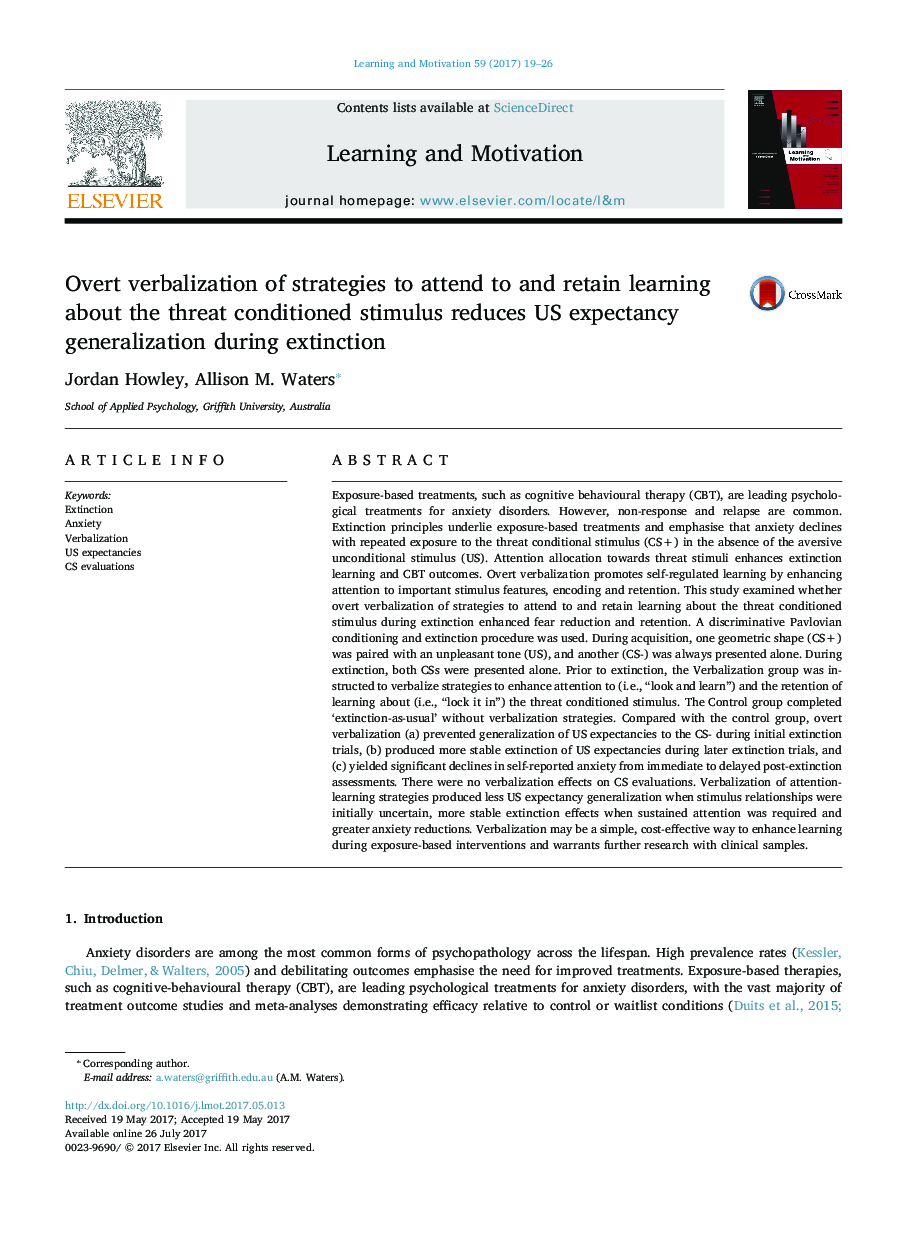| کد مقاله | کد نشریه | سال انتشار | مقاله انگلیسی | نسخه تمام متن |
|---|---|---|---|---|
| 5040099 | 1473509 | 2017 | 8 صفحه PDF | دانلود رایگان |
Exposure-based treatments, such as cognitive behavioural therapy (CBT), are leading psychological treatments for anxiety disorders. However, non-response and relapse are common. Extinction principles underlie exposure-based treatments and emphasise that anxiety declines with repeated exposure to the threat conditional stimulus (CS+) in the absence of the aversive unconditional stimulus (US). Attention allocation towards threat stimuli enhances extinction learning and CBT outcomes. Overt verbalization promotes self-regulated learning by enhancing attention to important stimulus features, encoding and retention. This study examined whether overt verbalization of strategies to attend to and retain learning about the threat conditioned stimulus during extinction enhanced fear reduction and retention. A discriminative Pavlovian conditioning and extinction procedure was used. During acquisition, one geometric shape (CS+) was paired with an unpleasant tone (US), and another (CS-) was always presented alone. During extinction, both CSs were presented alone. Prior to extinction, the Verbalization group was instructed to verbalize strategies to enhance attention to (i.e., “look and learn”) and the retention of learning about (i.e., “lock it in”) the threat conditioned stimulus. The Control group completed 'extinction-as-usual' without verbalization strategies. Compared with the control group, overt verbalization (a) prevented generalization of US expectancies to the CS- during initial extinction trials, (b) produced more stable extinction of US expectancies during later extinction trials, and (c) yielded significant declines in self-reported anxiety from immediate to delayed post-extinction assessments. There were no verbalization effects on CS evaluations. Verbalization of attention-learning strategies produced less US expectancy generalization when stimulus relationships were initially uncertain, more stable extinction effects when sustained attention was required and greater anxiety reductions. Verbalization may be a simple, cost-effective way to enhance learning during exposure-based interventions and warrants further research with clinical samples.
Journal: Learning and Motivation - Volume 59, August 2017, Pages 19-26
